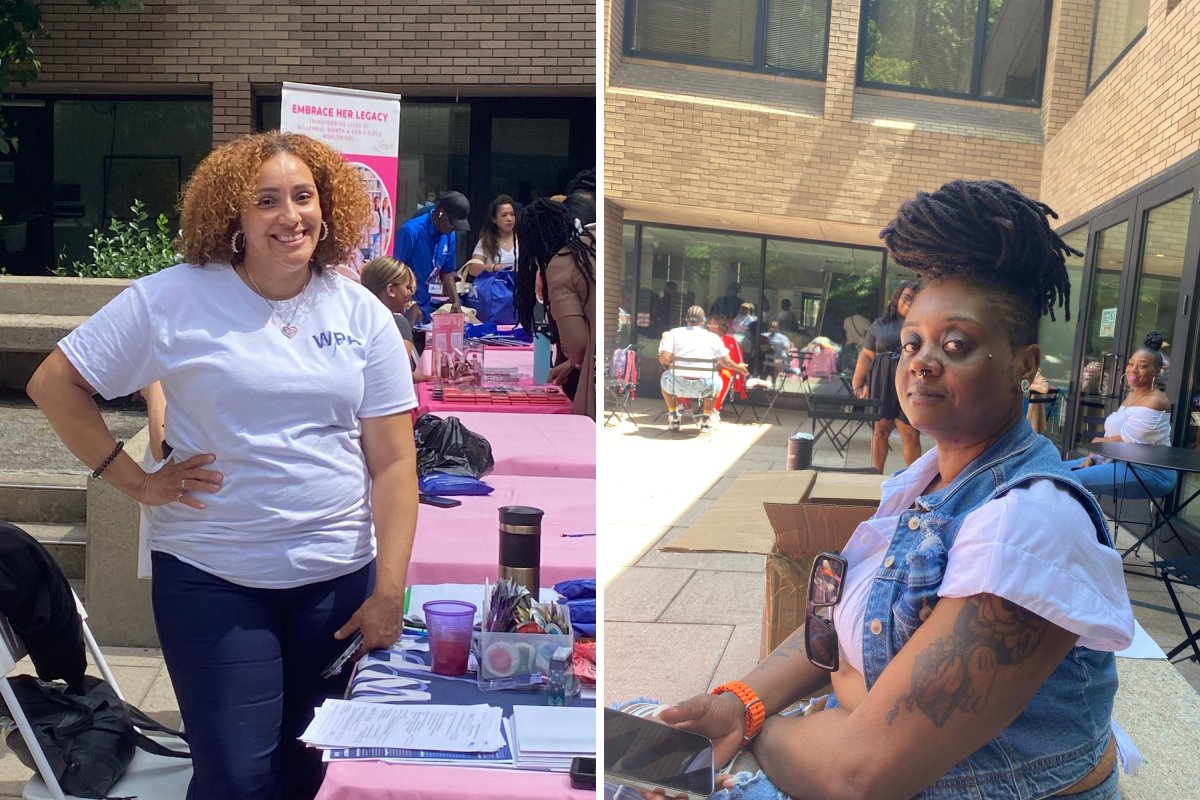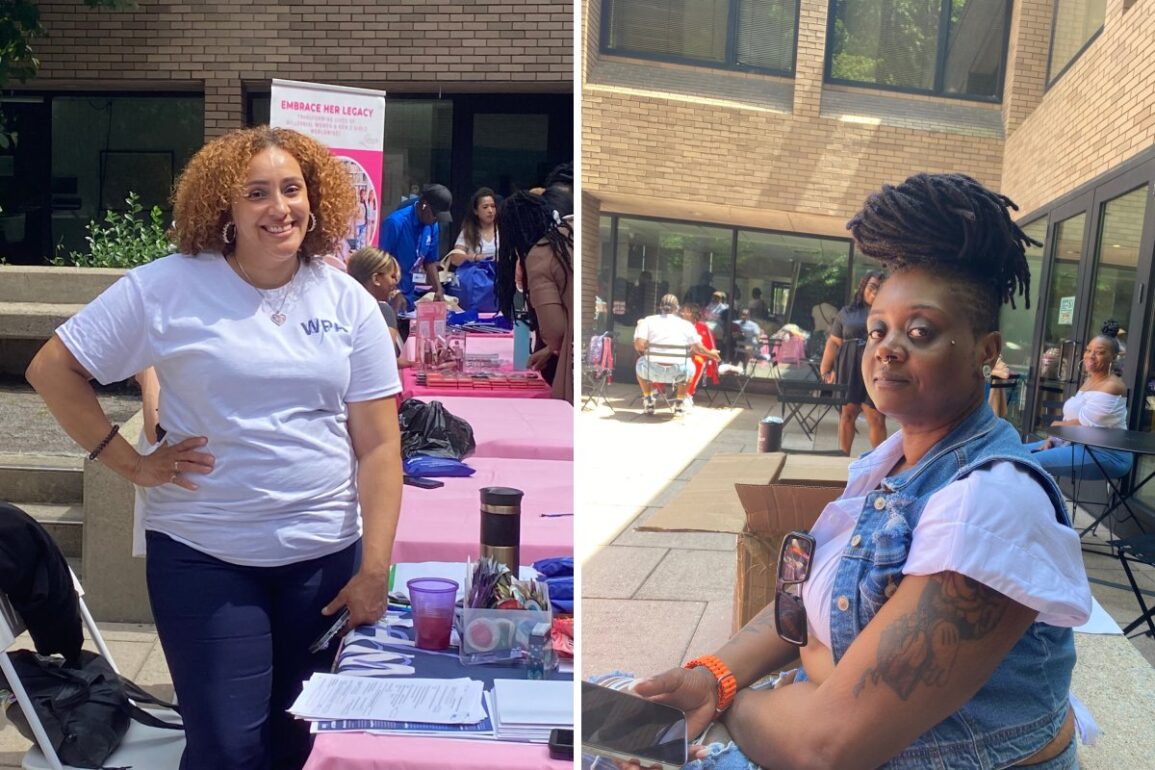Aylyn Restitutyo stepped off a bus from Rikers Island, blinking as her eyes readjusted to New York City after 10 difficult years behind bars. She was sent to an in-patient facility, alone, and living without a net—or her daughter.
“When I was released from prison, I felt lost, confused, and scared,” says the now-bubbly Restituyo, 40. “I did not have the tools or the strength to fight my mental trauma and stigma.”
Within a year of her release, Restituyo was living on the street and using drugs again, another lonely figure on the recidivist treadmill—until she found help from nonprofits that specialize in helping women get back on their feet after serving prison sentences.
“I was finally working with people who were passionate and loved what they did,” Restituyo says, her turquoise eyeliner glinting in the sun. “They believed in me even before I did. For the first time I felt hope and inspiration to change my life for the better. I felt free, forgiven, and loved.”
Restituyo now lives with her daughter and works for the Women’s Prison Association, where she helps other formerly incarcerated women navigate the often confusing world outside.

Left, Aylyn Restituyo changed her life with the help of a nonprofit after incarceration at Rikers Island in New York. Right, Safiyah Tate got her GED, a culinary license, a general maintenance certificate, and started college classes despite her incarceration at Albion Correctional Facility in upstate New York.
Emily Farache
Restituyo joined about 200 women and girls at a recent WE Nation summit, which provides empowerment, mentorship, and resources to women and girls that have been affected by incarceration in areas such as health, financial literacy, career development, and entrepreneurship, all in an effort to reduce recidivism.
“We see you,” Lucinda Cross, chief executive director and founder of Activate Your Life called out to an audience of energized women. “You are part of the community.”
Cheers erupted in Harlem School of the Arts’ performance hall, momentarily drowning out Cross’s speech.
According to the Prison Policy Initiative, 31,470 women were released from a New York state correctional facility in 2019.
Unlike men’s prisons where trades can often be learned, and education is frequently available in the form of GEDs and college classes, Cross says women’s prisons don’t typically offer enrichment programs to help women land on their feet and get a job after they’re released.
“It’s leaving one system that is getting paid to house you, to come into society and a community that doesn’t know you or how to handle or support you,” Cross says. “You’re not getting discharge instructions in terms of rehabilitation; you’re getting discharge instructions that tell you not to come back.”
She said many women end up in shelters or couch hopping, often returning to the same toxic environment they were previously a part of, which often includes abusers, drugs, and harsh judgments.
Recently incarcerated women are often overlooked, Cross says.
“I wanted to highlight this (at WE Nation) to see how we can pull resources together in a space where these women are elevated and supported as if they attended a major conference,” Cross says.
Even in prisons that have resources onsite to help women, there can still be major hurdles to cross.
Safiyah Tate, 37, was incarcerated at Albion Correctional Facility in upstate New York, where the Harlem native says she was sexually assaulted by two corrections officers.
“The Department strives to provide equal access to programs, services and resources to all individuals incarcerated in New York State correctional facilities,” NYS prisons told Newsweek in a statement.
DOCCS told Newsweek that it “has a number of professionals who are at the forefront of national efforts to identify and develop new promising practices to mitigate sexual abuse and ensure that the needs of survivors are met.”
While incarcerated, Tate connected with Osbourne, an organization that works to “replace punitive systems with community-generated solutions that promote healing, equity, accountability, and justice.”
With Osbourne’s help, Tate got her GED, a culinary license, a general maintenance certificate, and started college classes. Because her family wasn’t visiting, Tate was missing out on forging vital bonds with her growing children.
After passing one of Osbourne’s programs to have her children flown to Albion for a visit, Tate waited anxiously.
Just two days before her children were to fly out, Tate got in a fight with another inmate.
“I was pissed off,” Tate says, explaining her frustration. “My mom wasn’t even visiting.”
The visit was canceled.
Undeterred, Tate worked even harder with Osbourne, knowing that the end result, seeing her kids, was the bigger picture she wanted to be a part of.
“It’s how we heal from trauma,” Tate, a tall and proud woman, says. “That’s how we define who we are.”
After passing through the program again, her children were flown to Albion and Tate was reunited with her family.
When Tate left Albion, she had a staffer from Osbourne ready to help her return to her community.
“She is like the sister I never had. When I got out, she was there.” Tate says. “She helped my kids, asked me what I needed and then she sent four big boxes to my home.”
Tate says she now wants to become a reentry specialist. “I want to be of assistance to other people as people have been for me,” she says.
For Cross, that means scaling up her organization into a full service, wraparound facility catering to women on the ropes.
“You come in, you tell us what you need, and we’re able to help you step by step to get back on your feet and at least carry them for the first year with resources so that they’re supported to be on their own.”
Uncommon Knowledge
Newsweek is committed to challenging conventional wisdom and finding connections in the search for common ground.
Newsweek is committed to challenging conventional wisdom and finding connections in the search for common ground.
This post was originally published on this site be sure to check out more of their content.









